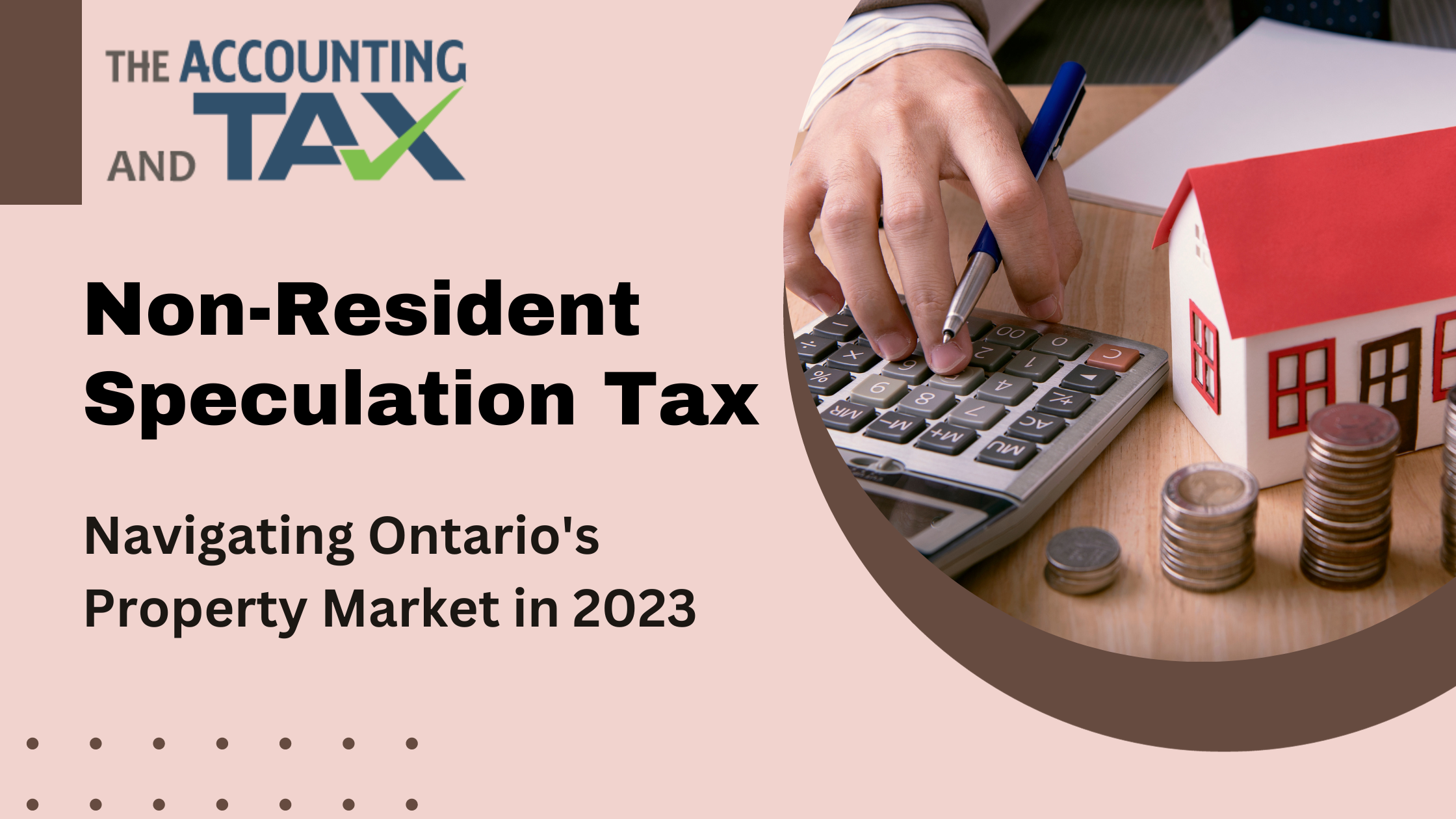
Non-Resident Speculation Tax: Navigating Ontario’s Property Market in 2023
Getting Started
Okay, so you’ve probably heard about the Non-Resident Speculation Tax (NRST) in Ontario. It’s a bit of a mouthful, but it’s an important part of the real estate scene here. Essentially, it’s a tax aimed at keeping a check on speculative investments, particularly from non-residents and foreign corporations.
Let’s break it down to understand how it works & who it affects.
What’s the Deal with the Non-Resident Speculation Tax?
Alright, let’s take a closer look at the implications of NRST. It’s like a speed bump for investors who aren’t calling Ontario their permanent home. The idea is to create a fairer playing field for local buyers. Since October 25, 2022, the NRST has been set at a rate of 25%.
Who Gets Hit by the NRST?
The NRST is aimed at specific groups involved in property transactions. This includes foreign nationals, foreign corporations, & taxable trustees. Now, when we say foreign nationals, we mean folks who aren’t Canadian citizens or permanent residents of Canada.
Which Properties are Affected by Non-Resident Speculation Tax?
NRST applies to what’s known as ‘designated land’. It’s a term that covers properties with one to six single-family residences. This covers a wide range of homes, from detached houses to townhouses, duplexes, and even condos. Importantly, the zoning of the land doesn’t matter – if it’s residential property, it’s ‘designated land’.
Who Ends Up Paying the NRST?
If anyone involved in a property transaction fits the criteria for foreign entities or taxable trustees, they’re the ones who’ll be paying the NRST. So, if even one person in the deal meets the criteria, the NRST applies to the entire transaction amount.
Are There Ways to Get Around NRST?
Both yes and no. Exemptions are used in certain circumstances. Nominees, protected persons, and spouses of Canadian citizens or permanent residents are normally covered by these rules, which apply to registered transactions.
However, keep in mind that you will need to produce the necessary documentation to confirm your eligibility for an NRST exemption.
How NRST Might Shape the Real Estate Scene
The introduction of NRST has got everyone talking about how it might impact the Ontario real estate market. One big potential effect is a potential drop in speculative activity. By putting a tax on short-term, profit-driven investments by non-residents, the government hopes to create a more stable housing market in the long run.
Additionally, the NRST might level the playing field for local buyers. With potentially fewer foreign investors in the mix, there could be more opportunities for Canadian citizens & permanent residents to get into the real estate market. This might lead to a more balanced supply and demand scenario, which could help stabilise housing prices.
Navigating Non-Resident Speculation Tax: Exemptions and More
While NRST is important, there are situations where individuals or entities might be exempt or eligible for rebates. For instance, individuals who get permanent residency after a transaction may qualify for an NRST rebate, provided they meet specific requirements.
Understanding the ins and outs of exemptions for nominees, protected persons, and spouses of Canadian citizens or permanent residents is vital. Making sure you have the right documents and meet the criteria is crucial to benefit from these exemptions.
Playing by the Rules: Non-Resident Speculation Tax Compliance and Enforcement
Just like with any tax, following the rules is key. The Ontario government has measures in place to make sure NRST is paid as it should be. This includes looking at cases where Canadian citizens or permanent residents act as taxable trustees for foreign entities. They’re also keeping an eye out for any attempts to use multiple transactions to dodge Non-Resident Speculation Tax.
Not playing by the NRST rules can lead to penalties, fines, and even legal trouble. So, it’s really important for everyone involved in real estate deals to know and follow NRST requirements to avoid any unwanted consequences.
What’s Next for Ontario Real Estate?
The Ontario real estate market is changing as a result of the implementation of NRST. As the market adjusts to these new restrictions, investors, buyers, and industry professionals must keep educated and change their plans. This could include getting expert counsel, researching alternative investing options, or taking advantage of any applicable exemptions.
Questions You Might Have
- So, can a permanent resident of Canada be hit with NRST?
Answer: No. Permanent residents are in the clear, as long as they haven’t lost their permanent resident status.
- What if I apply for permanent residency after the transaction closes?
Answer: If you get your permanent residency after the deal is done, you might qualify for an NRST rebate. Of course, there are specific requirements you’ll need to meet.
- What about Canadian citizens living abroad? Are they affected by NRST?
Answer: No, Canadian citizens are exempt, no matter where they’re living. As long as they’re buying residential property exclusively with other Canadian citizens or permanent residents, NRST doesn’t apply.
Conclusion
In a nutshell, the Non-Resident Speculation Tax is a big deal for Ontario’s real estate market. Understanding its effects, potential impacts, and where you might qualify for exemptions is crucial for anyone involved in property deals.
By navigating the NRST world with knowledge and compliance, you can help create a more sustainable & accessible housing market for everyone. Remember, staying informed is the key to a smooth real estate experience in Ontario.
In addition, you can find the latest Canadian tax updates here for your reference.
